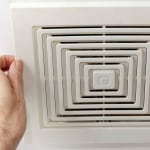
FKuR will be showcasing its expanded portfolio of biobased thermoplastics for a growing range of applications including packaging, consumer products, sporting goods and technical parts at K 2019 in stand E48 in hall 6.
Current additions to the portfolio include two glass-reinforced grades within the Bio-Flex and Terralene product family, both with high rigidity, and three Terraprene TPE grades, one of which is characterized by its high bio-content, while the other two are oil-free.
Bio-Flex GF30 is a PLA based compound with a glass fiber content of 30 % (by weight). This combines a relatively high stiffness of around 8,400 MPa with an equally high tensile strength of 70 MPa (ISO 527). Due to the high glass fiber content, the notched impact strength is also good at 6.4 kJ / m². Correspondingly, the wear resistance is better than with the unreinforced types. The biobased carbon content (BCC) is over 70% (calculated). Applications can be everywhere where high mechanical strength, but not where resistance to high temperatures or flame retardancy is required. Examples include housings, castors, gears, sports equipment, orthotic devices, pipes and pipe systems.
Terralene GF30 is a Green PE compound with a glass fiber content of 30% (by weight) and a calculated BCC of more than 94%. The stiffness of 4.800 MPa is significantly higher than that of the mineral-filled grades with a wear resistance which is superior to the unfilled grades. As a biobased alternative to PE-GF grades, based on oil based materials, it offers a similar range of applications, ranging from engineering parts to tubes and tube systems, dowels and brackets for the construction industry, orthotic devices and design products.
New within the biobased Terraprene TPE compounds family are the grades SI 701 and SI 801, whose bio content (calculated) range from 55% to 75%. They are available in Shore A40 to A80 grades and their properties are largely similar to those of conventional TPE-S grades. Typical applications include two-component injection molding, especially with polyolefins, which provide good adhesion.
Terraprene CI 250 84A and Terrapene CI 450 93A are two oil-free TPEs with Shore A hardness of 84 or 93. With their soft-touch surface, high resistance to kinking and deformation, they can substitute TPE-O and PVC in many injection molding applications.
Carmen Michels, Member of the Executive Board of FKuR, states: "At K2019 we present ourselves as one of the suppliers with the world's broadest portfolios of biodegradable and biobased plastics, for all processing methods from injection molding, profile and film extrusion, blow molding and thermoforming right through to 3D printing. The addition of glass-fiber reinforced bioplastics and oil-free and biobased TPE grades to our portfolio now opens up additional market segments for these sustainable materials, especially in the broad range of technical applications.“
Visitors to the FKuR booth will find, in addition to a wealth of information about biopolymers and their applications, a 350-ml reusable cup filled with freshly brewed coffee, for which dom Polymer-Technik (www.dom-pt.com) uses plastics from the FKuR portfolio. The cup itself and its lid are made from biobased polyethylene compound Terralene HD 4527, the cover flap is made of biobased Green HDPE SHA 7260 from the family of the ‘I 'm green’ PE grades from Braskem. The cuff is made from Terraprene SI 601, a grade of partially biobased TPE compounds from FKuR. This practical give-away impressively demonstrates how disposables can be replaced with reusable products and how their advantages can be further enhanced by the choice of sustainable materials.
Source: FKuR



